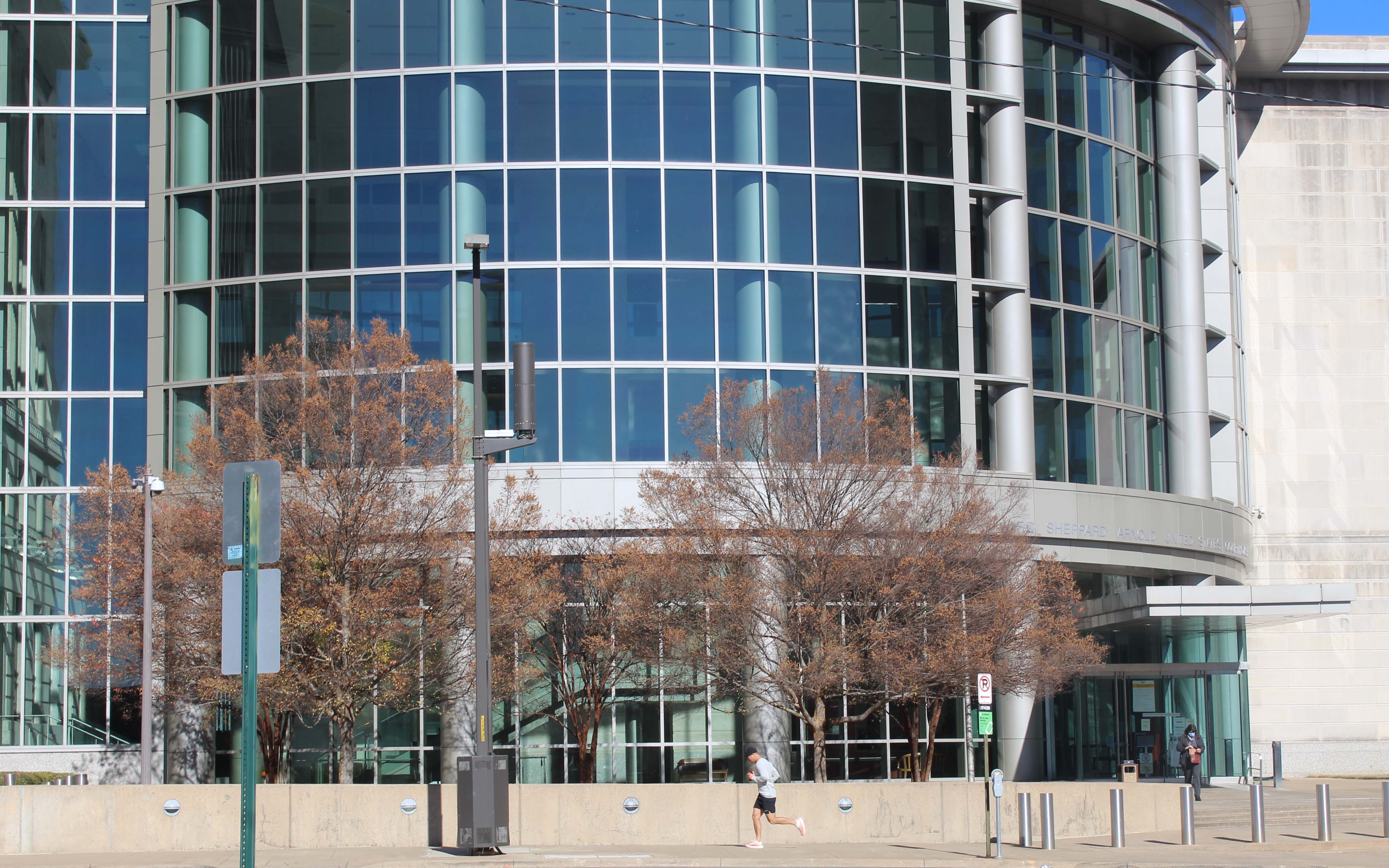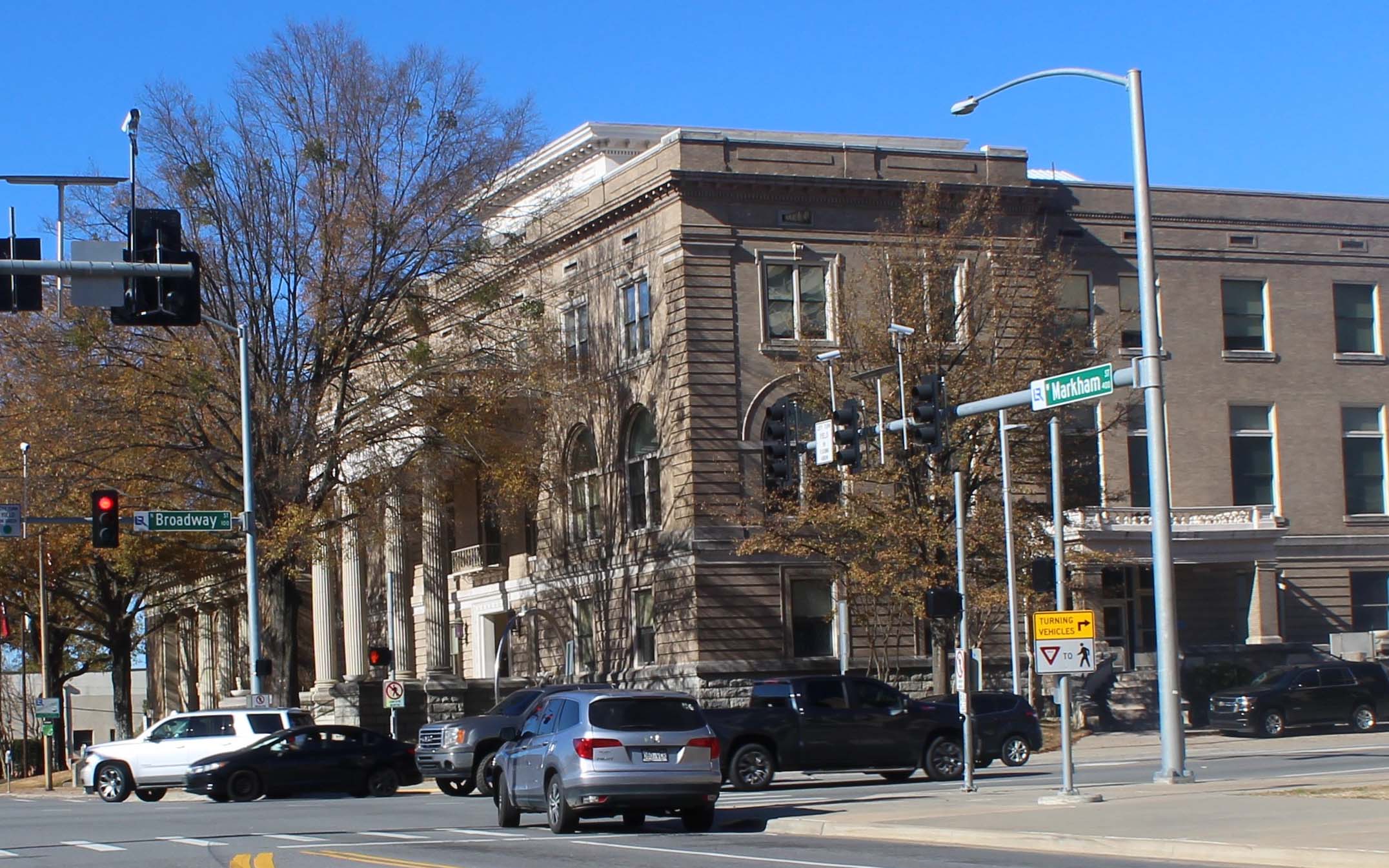Arkansas’ civil rights, IP and Hispanic-focused practices are legal areas to watch in 2021, beyond
December 14-20, 2020
By Dwain Hebda
Not that they ever fully went away, but legal careers are hot again. In its annual National Lawyer Population Survey, the American Bar Association reported more than 1.33 million attorneys in the United States, grown from 1.2 million in 2010 and 1 million in 2000.
Across that timeline, legal specialties have also evolved to reflect changing economic, social and political times. The Daily Record queried three local attorneys in legal areas expected to stay in the spotlight in the new year and beyond. Here’s what they told us about the future of the legal landscape in Arkansas.
Intellectual Property
Identifying IP law as a growth legal sector is something of a misnomer, given the specialty has enjoyed sharp spikes in demand for the past 20 years. But Arkansas was largely left behind in the patent field, until now. According to statistics by the United States Patent and Trademark Office, there have been 10,116 patents issued to inventors from Arkansas since 1976. A little more than a quarter of them (2,732 to be exact) have been issued in the past five years.
Jon Wood, who has represented Eastman Chemical and Bridgestone America in patent law, and who now heads the Waldron Center for Entrepreneurship at Harding University’s College of Business Administration, said the changing retail landscape is driving much of the growth.
“Amazon and Walmart are in an arms race for the future of retail. Both of them have their different advantages and it’s fascinating to see,” he said. “Amazon is a formidable foe for Walmart, although I’m very impressed with Walmart’s efforts to keep up in the intellectual properties space.”
“They understand that what’s controlling the future economy is not necessarily the goods, it’s the platforms that are being used to make the goods more efficient. There’s a lot of intangible and intellectual property being developed as a result of this.”
Wood pointed out that while this competition continues to escalate, it does not translate to much patent work at present for Arkansas firms. In fact, a random sample of 50 recent patents showed only six were represented by Arkansas attorneys. But should Walmart pivot to insist, as it does with many of its vendors, that their patent work be done by in-state firms, it would represent a potential windfall of work for native attorneys as well as likely attract more legal expertise from elsewhere to relocate here.
And, Wood notes, that does not even consider the increased patent activity through such entities as the University of Arkansas, specifically through UAMS, the burgeoning startup community statewide, and the bounce-back expected by other industries post-COVID-19.
“There are a lot of companies that are not being helped by COVID-19 and are cutting back and that’s one of the things where they’ve really cut. They’re really cutting their patent budget right now,” he said. “But there’s companies that are being helped [by the pandemic]. There’s been a tremendous increase in the chemical and biotech field because of COVID-19. Moderna, Pfizer and Biogen, all of these companies are really hiring transactional and patent lawyers and anyone that has to do with patents because of all the money and effort that’s been pumped into COVID-19. You see some of that from UAMS, where they are really doing a wonderful job trying to increase the amount of intellectual property and startups that come out of there.
“You’ll also see this with the Venture Center and Remix Ideas [in Little Rock] and the startup economy in general. I advise a lot of startups and they have no money. Their investors always say, ‘Why is someone else not going to copy this?’ and they want to see patents,” Wood continued. “The reason venture capitalists love software is because it’s so scalable; once you come up with it and people buy into it, you can replicate it with no extra cost and have it implemented all over the world. With the startup economy around Little Rock, Jonesboro and Northwest Arkansas, I’d expect to see an uptick in this activity.”
Civil Rights
The lingering effects of this summer’s protests against police misconduct, coupled by a progressive win in the 2020 presidential election, have put civil rights issues in the national spotlight. Such attention has spurred calls to firms specializing in civil rights cases, though not necessarily generating more business said Reggie Koch, founder of the Koch Law Firm in North Little Rock.
“On the one hand, I get way more calls than I used to because people perceive that their rights were violated. It seems like I spend a lot of time every week sitting and listening to this story and that story,” he said. “We want more calls, right? More calls generally mean more cases. I have way more calls and yet, fewer good cases.”
Koch said there are several factors for this strange limbo in which he finds himself. For one, potential plaintiffs see media coverage of events which inspire them to call. But so do potential defendants, and they are taking more measured steps to guard against being hauled into court.
“Police are being more careful,” Koch said. “I’m not saying [offenses are] not happening. I know it’s happening. I’m just saying that they’re dotting their I’s and crossing their T’s more. I know there’s a lot of bad going on, but police departments are taking it seriously and they’re tightening up. That’s my opinion, based on what I’m seeing.”
Koch said the changeover in the White House could potentially result in more civil rights litigation which, in addition to police misconduct, also includes cases concerning employment or housing discrimination.
“By and large, your civil rights violators are going to be on the conservative side, whether you’re talking about employment, police work, housing or any of that. That’s just my experience in 15 years [in practice],” he said. “The last four years, [violators] have felt empowered. The victims – and the two areas where I had the most knowledge are with transgenders and immigrants – they feel less empowered.
“With this new administration, I assume that that will sort of reverse. Maybe, the civil rights violators will feel less empowered and maybe minorities will feel more empowered, but how is that going to result? Is that going to result in me having more cases? I don’t know. That’s a hard one to call.”
As one of a growing number of firms specifically serving LGBTQ+ cases, Koch said he does expect this area of practice to grow, though not as much as firms dealing in family law, particularly as gay rights protections continue to broaden.
“Divorces are way more complicated now and marriages and pre-nups and all sorts of issues to do with same-sex marriages. No doubt that’s going to be a burgeoning area, though not for my practice, specifically,” he said. “I mean, we don’t even know what kinds of problems we’re going to have. I think a lot of that’s yet to be discovered.
“If we’re talking about the business of same-sex marriage, the business of adopting kids, I think same-sex adoption is something that’s going to get a lot of scrutiny. But, as far as discrimination against them, I don’t know. It is just so hard to call whether it’s going to get better or whether it’s going to get worse,” explained Koch.
Latino/Hispanic-focused
A subset of civil rights and family law with ramifications in Arkansas, demand for firms with a Hispanic/Latino focus is growing fast. Robert Tellez, founder of Tellez Law Firm in North Little Rock, said even pedestrian cases, such as resolving parking ticket disputes, all-too-often operate under the shadow cast by immigration issues.
“Anybody who wants to serve this community, if you’re dealing with the Spanish-speaking community, immigration is a big issue,” Tellez said. “Immigration is there and there’s immigration-type consequences in almost every case that I’m dealing with, which is honestly why a lot of people don’t want to do this type of work. You have to deal with the immigration consequences, not only with criminal defense, but with family law cases.”
Any way you look at it, the Hispanic and Latino populations in Arkansas are a force in the wider landscape. The U.S. Census Bureau estimated Arkansas’s population at just over 3 million as of July 2019, of which 8% were of Hispanic and Latino origins. The U.S. Bureau of Labor Statistics reports 1.4 million people in Arkansas’s workforce, of which 117,000 are Hispanic/Latino workers. And, driven by economics and harsh social conditions in native countries, those numbers continue to climb.
“As things continue to deteriorate, or at least not improve in Central and South America, a lot of people come to the United States that want to be here to work and to make a decent living and be able to support their families back home, in Mexico, Honduras, El Salvador and Guatemala,” Tellez said.
“Initially, it’s an economic imperative; if you’re going to make $300 a week, that’s a big deal because in some of those countries, $50 a week is what you’ll make for a lot of the manual labor. But, once they get here, every family has their own impetus. They want to have a better life for their kids here. So, they want to come here and establish roots and have their kids go to school here and stay here.”
“I think the needs of this community will continue to grow and grow over the next 50 years. A lot of these kids are more American than anything, whether they were born in the U.S. and they’re Americans like me, or if they were born in another country and they came here as young kids. They don’t know any country but this country.”
Tellez said the population is growing so fast, it has quickly outstripped the capacity of the state’s legal community to meet their needs.
“I see a critical need for legal services here in the Little Rock and North Little Rock areas, and throughout the state,” he said. “, we have one of the lowest per capita attorney-to-client ratios in the country, particularly in our rural areas. We’re very underserved. For the Spanish-speaking immigrant community, it’s even worse.
“There’s a tremendous need for family law cases. There’s a big need for civil cases because people are working and not being paid. You name the legal issue, and the issues are there and will continue to become more and more prevalent. It’s civil rights right now. I think trademarks and patents might not be as much right now, but one day, in 30 to 40 years, you’ll need that, too,” said Tellez.
PHOTO CAPTION:
1. As 2021 nears, local attorneys specializing in civil rights, intellectual property, and Hispanic-focused cases are seeing strong interest.
2. The U.S. District Court for the Eastern District of Arkansas in Little Rock handles federal cases for the nation’s Eighth District. It was renamed the Richard Sheppard Arnold federal courthouse in 2003.





